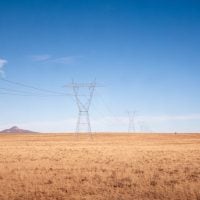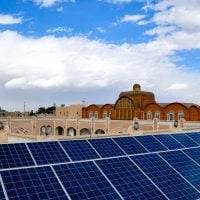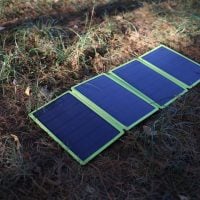Deadline: 5-Feb-21
The Critical Ecosystem Partnership Fund (CEPF) and the International Union for Conservation of Nature (IUCN) are currently accepting Letters of Inquiry (LOIs) from nongovernmental organisations, community groups, Indigenous People’s organisations, women’s groups, private companies and other civil society organisations for projects that address the conservation of biodiversity in the Indo-Burma Hotspot.
CEPF is designed to safeguard Earth’s biologically richest and most threatened regions, known as biodiversity hotspots. CEPF is a joint initiative of l’Agence Française de Développement, Conservation International, the European Union, the Global Environment Facility, the Government of Japan, and the World Bank. In the Indo-Burma Hotspot, it is also supported by the Margaret A. Cargill Philanthropies. A fundamental goal is to ensure civil society is engaged in biodiversity conservation.
Priority Areas
- Strategic Direction 1. Safeguard priority globally threatened species by mitigating major threats.
- CEPF and IUCN invite proposals that address one or more of the following investment priorities:
- Sustain long-term conservation programmes for core populations of priority species.
- Re-establish viable wild populations of priority species in line with global guidelines.
- Conduct research on globally threatened species for which there is a need for greatly improved information on status and distribution.
- Research and pilot innovative funding sources for species conservation.
- Support species champions at the community level to implement locally identified actions for priority species.
- Strategic Direction 2. Mitigate zoonotic disease risks by reducing illegal trade and consumption of and threats to wildlife.
- CEPF and IUCN invite proposals that address one or more of the following investment priorities:
- Support enforcement agencies to unravel high-level wildlife trade networks by promoting the application of global best practice with investigations, intelligence and informants.
- Facilitate collaboration among enforcement agencies involved in combatting illegal wildlife trade, as well as with other sectors as part of a One Health approach.
- Work with private and state-owned companies, with a particular focus on logistics and online platforms, to reduce their involvement in wildlife trafficking.
- Support targeted campaigns to reduce demand and mobilise public participation in detecting and reporting wildlife crime.
- Understand and support action to address linkages between biodiversity and human health, including the role of biodiversity loss in the emergence of zoonotic diseases.
- Strategic Direction 8. Strengthen the capacity of civil society to work on biodiversity, communities and livelihoods at regional, national, local and grassroots levels CEPF and IUCN invite proposals that address the following investment priority:
- Establish mechanisms to match volunteers to civil society organisations’ training needs.
Funding Information
- Large grants – up to US$40,000 to US$250,000;
- Small grants – up to US$40,000.
Eligibility Criteria
- This call is open to both international organisations and organisations local to the IndoBurma Hotspot. Individuals wishing to apply must work with civil society organisations to develop applications, rather than apply directly. Please note that preference will be given to projects that demonstrate a leading role for local organisations and/or an explicit focus on capacity building for local civil society. Preference will also be given to projects that actively incorporate gender considerations, in line with CEPF’s gender policy and gender toolkit.
- Grants cannot be used for:
- purchase of land;
- removal or alteration of any physical cultural property (including those with archaeological, palaeontological, historical, religious or unique natural values);
- relocation of people or any other form of involuntary resettlement;
- capitalization of trust funds.
- Eligible countries: Cambodia, China, Lao PDR, Myanmar, Thailand and Vietnam.
Tips For Getting Your Grant Idea Funded
In total, CEPF’s grant directors have reviewed some 5,000 letters of inquiry (LOIs). They recently reflected on what makes a proposal stand out, and what makes it miss the mark. Here’s their advice:
- READ THE ECOSYSTEM PROFILE: Reading the hotspot’s ecosystem profile — or, at a minimum, the chapter on investment strategy and program focus — will help you determine if your project is a good fit for CEPF before you put time and energy into writing an LOI.
- BE SPECIFIC: Where are you going to work? What are you going to spend the grant money on? What will you achieve? What is the timeline? “Successful applicants set out the tangible results that they expect to see, and they explain what change that will make in the world and why that matters,” Tordoff said.
- CONSULT OTHER STAKEHOLDERS: For a project to be effective, grantees need buy-in from the other people involved, whether that’s the local authorities, the village where the project will take place or the national government. “Even when it’s the community itself [submitting the LOI] — like a women’s cooperative — even they sell the process short by not involving other stakeholders,” Grant Director Dan Rothberg said.
- START SMALL: If you’ve never worked with CEPF, develop a modest project idea that requires a smaller budget. From there, you can build a relationship with CEPF’s staff and the Regional Implementation Team.
- PICK A PROJECT YOU’RE PASSIONATE ABOUT: For Grant Director Pierre Carret, enthusiasm is more important that an LOI with perfect grammar and flawless logic. “When people are passionate, you feel it. That’s the strength of civil society.”
- BE REALISTIC: “When people promise too much, it makes it seem as though they don’t understand how things actually work, and we can see through that pretty easily,” said Rothberg. “We want small, good ideas, and we like when people apply with those ideas because it makes us think that those people know their own capabilities.”
- SOLICIT FEEDBACK: Before you submit your LOI, have someone else look it over. “Talk with colleagues, share with friends, consult the inhabitants of the project location, exchange with local administration, connect with experts or researchers from universities,” said Carret. “A good proposal is not the proposal of one person!”
- CONSIDER YOUR AUDIENCE: Even Zador, who has been a CEPF grant director for 14 years, can’t know everything about each place and project. “Potential grantees should understand that the people reading these proposals do not know the particular circumstance of the particular project,” she said. Rothberg agreed. “Good applicants take things out of their terms and put them into our terms,” he said. Though he noted that it’s safe to assume grant directors already understand that the biodiversity hotspot is an important place to protect, so explaining that isn’t necessary.
- GET TO THE POINT: Grant directors and regional implementation teams aren’t looking for beautifully written prose; they’d rather you were succinct. “We have seen proposals that are 10 lines long and are good enough,” said Rothberg. “Give me a good idea, make it clear and tell me where it is. We are going to help you with everything else.”
- THINK BEYOND THE GRANT: CEPF aims to fund projects that will make substantial, long-term change. “We want to ensure that the results and impacts being sought from a project will be sustained after the CEPF funding ends,” Zador said.
- EXPLAIN WHY YOU’RE THE ONE FOR THE JOB: A successful LOI describes why you are the most qualified organization to implement the project, whether that’s because you have expertise or live in the community. “People make the assumption that because they wrote the proposal they are the best one to do it,” said Rothberg. “That’s not a good assumption.”
- TALK WITH US!: Some donors discourage applicants from contacting them for advice during the application process, but CEPF encourages applicants to reach out. “We can be consulted at any time to guide potential grantees and to discuss project ideas,” Grant Director Peggy Poncelet said. The grant directors and regional implementation teams want to help you submit a successful LOI, even if you’re brand new to grant writing. “We have a lot of experience working with organizations like yours, so take advantage of that experience,” Tordoff said. “We’re here to help.”
For more information, visit https://www.cepf.net/grants/open-calls-for-proposals/2020-indoburma-small-and-large-grants









































